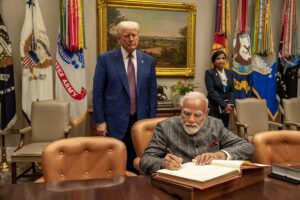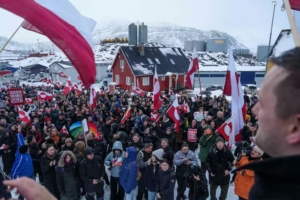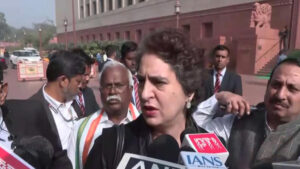Even The UN Is Struggling To Meet Its Gender Parity Goals

The UN promotes gender equality globally, yet it still faces a significant gender gap in its own leadership roles (UN Women/Amanda Voisard)
The UN’s leadership still lacks gender balance, with only a fraction of member states appointing female diplomats despite global targets for representation.
The United Nations has been at the forefront of promoting gender equality around the world. But despite decades of efforts and commitments, the organisation continues to face a significant gender gap in its own leadership positions.
Almost 30 years after the Fourth World Conference on Women in Beijing, where the UN reaffirmed its goal of having women taking up at least 30 percent of leadership roles, not much progress has been made.
The target, originally set in 1990, was meant to lay the groundwork for equal representation between men and women by 2000.
However, as of September 2024, only 66 of Inter-Parliamentary Union (IPU)’s 190 active member states have reached the minimum 30 percent women’s representation in their national parliaments. Rwanda leads with an impressive 63.8 percent, but two-third of the nations fall short.
With its six institutions — the General Assembly, Security Council, Economic and Social Council, Trustee Council, International Court of Justice (ICJ) and Secretariat — one might expect the UN to be a model of gender parity.
A closer look reveals a mixed picture.
The first four bodies consist of all or some member states, the last two consist of individuals, who are employed by the UN or seconded by member states.
For example, the UNGA Secretariat shows promise — 63 percent of its 43 staff members are women — but none of its three highest-ranking officials among UN employees are women. Interestingly, 15 out of the 20 secondments from member states, including a Deputy Chef de Cabinet from Azerbaijan, are women.
In contrast, only four of the 15 judges in the ICJ are women, falling short of the 30 percent target.
Among the 193 member states, currently only 49 appoint women as their permanent representatives to the UN — 4.6 percent shy of the 30 percent goal. These women hail from a geographically and culturally diverse mix of nations — from the affluent (Norway, Qatar and Brunei) to the developing (Madagascar, Honduras, Saint Lucia and Nauru).
Interestingly, the UN Security Council, often regarded as the heart of global decision making, has managed to reach the 30 percent goal threshold.
Of the 15 members, two permanent members (the US and UK) and four non-permanent members (Guyana, Malta, Slovenia and Switzerland) are represented by women.
This could change if these six countries appoint male representatives or if the four non-permanent members are replaced by other countries with male representatives when their two-year term ends.
Quotas challenge
The fundamental challenge lies in enforcing gender quotas for country representatives. Unlike organisational employment, where gender quotas can be more easily implemented, each country has only one representative, making gender balance a complex and often unattainable goal.
As countries may have multiple considerations in picking representatives, coordination between them to ensure a good gender mix will be an uphill task.
The European Commission, which consists of one representative from each of the 27 member states, has this problem.
Initially, only seven other countries nominate a woman while Bulgaria nominates a man and a woman as requested by its Commission President, Ursula von der Leyen (of Germany) who wants options for a gender-parity line-up.
For the UN, coordinating member states for a good gender mix of their representatives would be even harder.
One idea might be to reserve prominent speaking slots for countries with female representatives at the UN General Assembly, offering a symbolic yet cost-effective incentive to encourage gender parity.
As the world continues to grapple with gender inclusion, the UN can reflect on its own structures and strive to lead by example. Only then can the ambitious goals set nearly three decades ago in Beijing can become attainable.
(Originally published under Creative Commons by 360info™)





